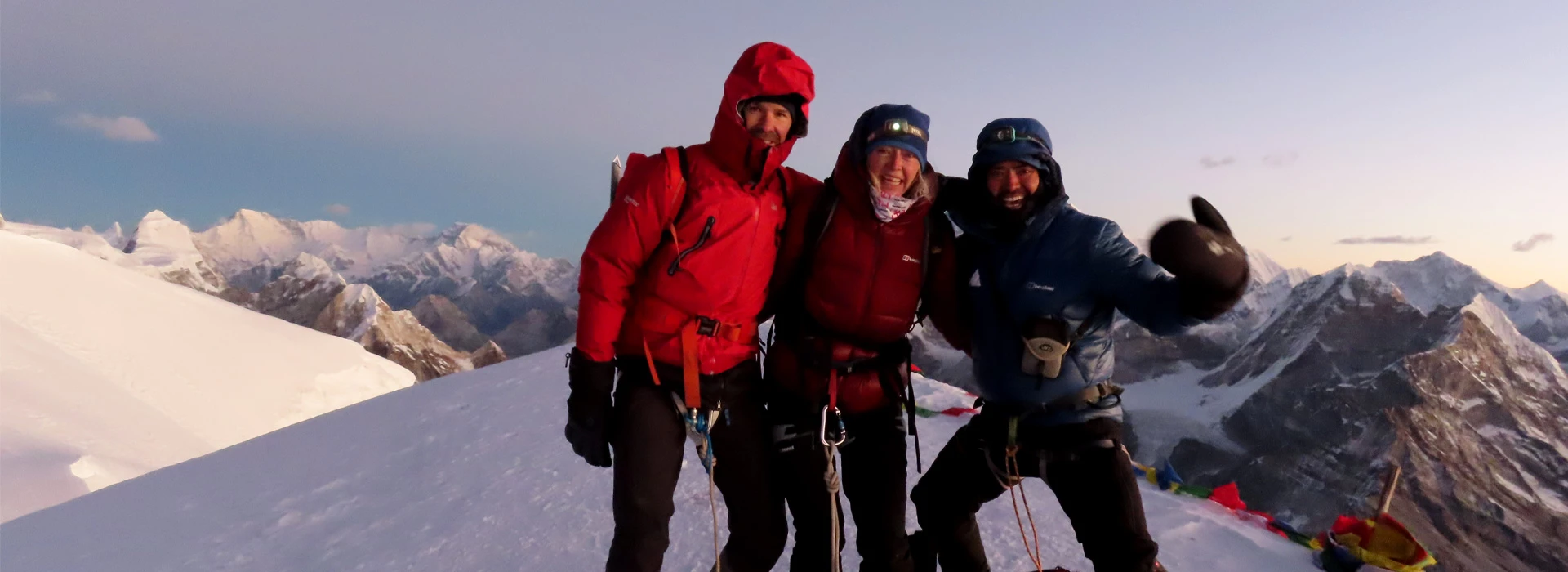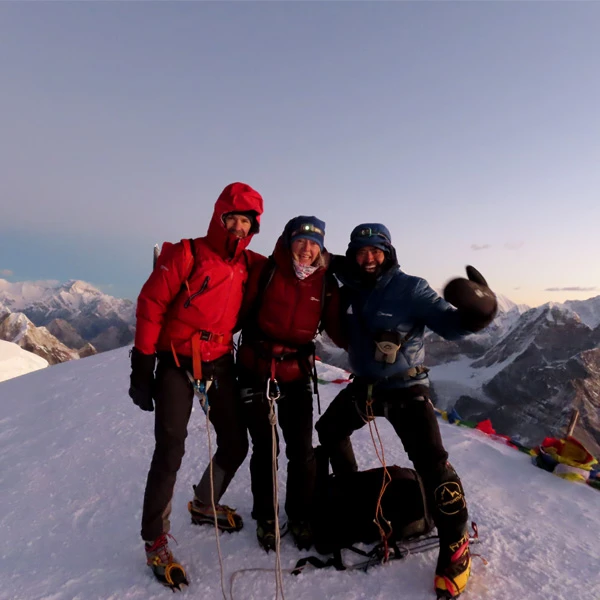Trip Overview
Mera Peak (6,476 m) is one of the highest trekking peaks in Nepal and a popular choice for adventure-loving climbers. Located in the Everest region, Mera Peak offers stunning views of five of the world’s tallest mountains – Everest, Lhotse, Makalu, Cho Oyu and Kanchenjunga.
Mera Peak is a perfect challenge for fit trekkers and beginner climbers looking to experience Himalayan mountaineering. It doesn’t require technical climbing skills, but good fitness, mental strength, and proper acclimatisation are essential. The climb involves walking on glaciers with ropes and crampons, and there’s a steep final push to the summit, but the reward is unforgettable.
The Mera Peak adventure begins with a short 15-minute flight from Manthali Airport to Lukla – a quick and reliable flight to start your journey. From Lukla, the trail takes you through beautiful Sherpa villages, lush forests, and high alpine landscapes. You will explore remote valleys and peaceful surroundings, far from the busy Everest Base Camp route.
Experience More Than Just a Climb
Mera Peak climbing is not just about reaching the top – it’s also about discovering the Himalayan way of life. You’ll stay in local teahouses, share stories with Sherpas, and witness a lifestyle that is simple, spiritual, and deeply connected to nature.
Difficulty Level – Is Mera Peak Hard?
Mera Peak is graded as PD (Peu Difficile / a little difficult) in mountaineering terms. It’s a non-technical climb but still physically demanding due to the high altitude. The final summit day can be challenging because of the cold, wind, and thin air. But with the right preparation and guidance, most fit trekkers can do it.
Key challenges:
- Altitude sickness
- Cold weather and strong winds
- Long walking hours (6–8 hours daily)
- Glacier travel with basic mountaineering gear
Tips and Tricks for a Successful Climb
- Train well before your trip – focus on cardio, strength, and stamina.
- Do at least 1 high-altitude trek before attempting Mera Peak.
- Pack the right gear – crampons, ice axe, down jacket, and layered clothing
- Stay hydrated and walk slowly to help with acclimatisation.
- Choose a trusted local company with experienced guides and porters.
- Use climbing boots that are broken in to avoid blisters.
- Be mentally prepared – the summit push is tough but worth every step!
Best Time to Climb Mera Peak
The best seasons for Mera Peak climbing are:
- Spring (March to May)
- Autumn (September to November)
During these months, the weather is clear, the skies are blue, and you’ll get the best mountain views.
Join Us for a Life-Changing Adventure
Our carefully planned 17-day Mera Peak itinerary is designed to give you a safe, enjoyable, and rewarding climbing experience. Whether you're a beginner mountaineer or a seasoned trekker, Mera Peak is a dream waiting to be fulfilled.
Book your Mera Peak climb today and take the first step toward your Himalayan adventure!




